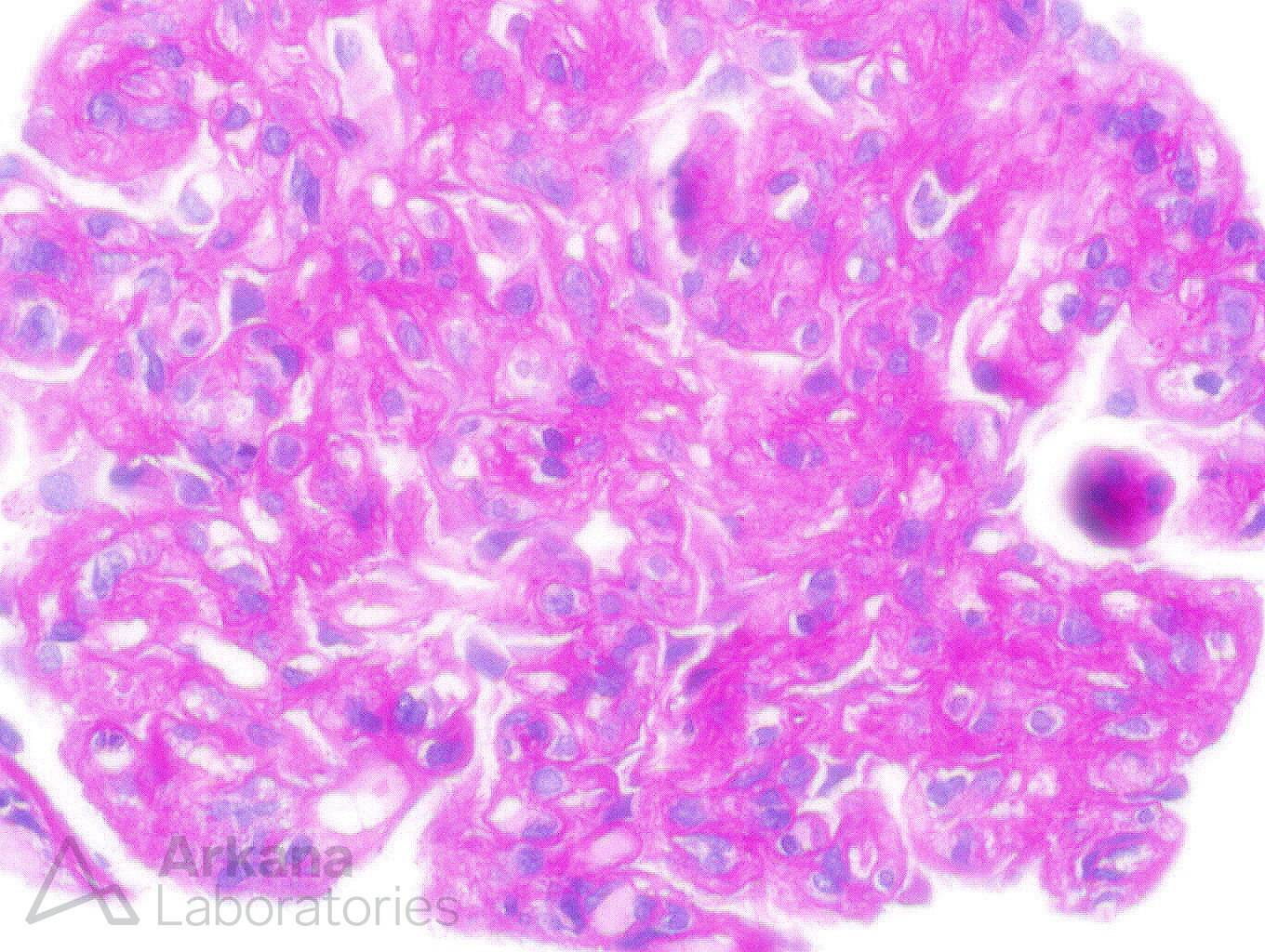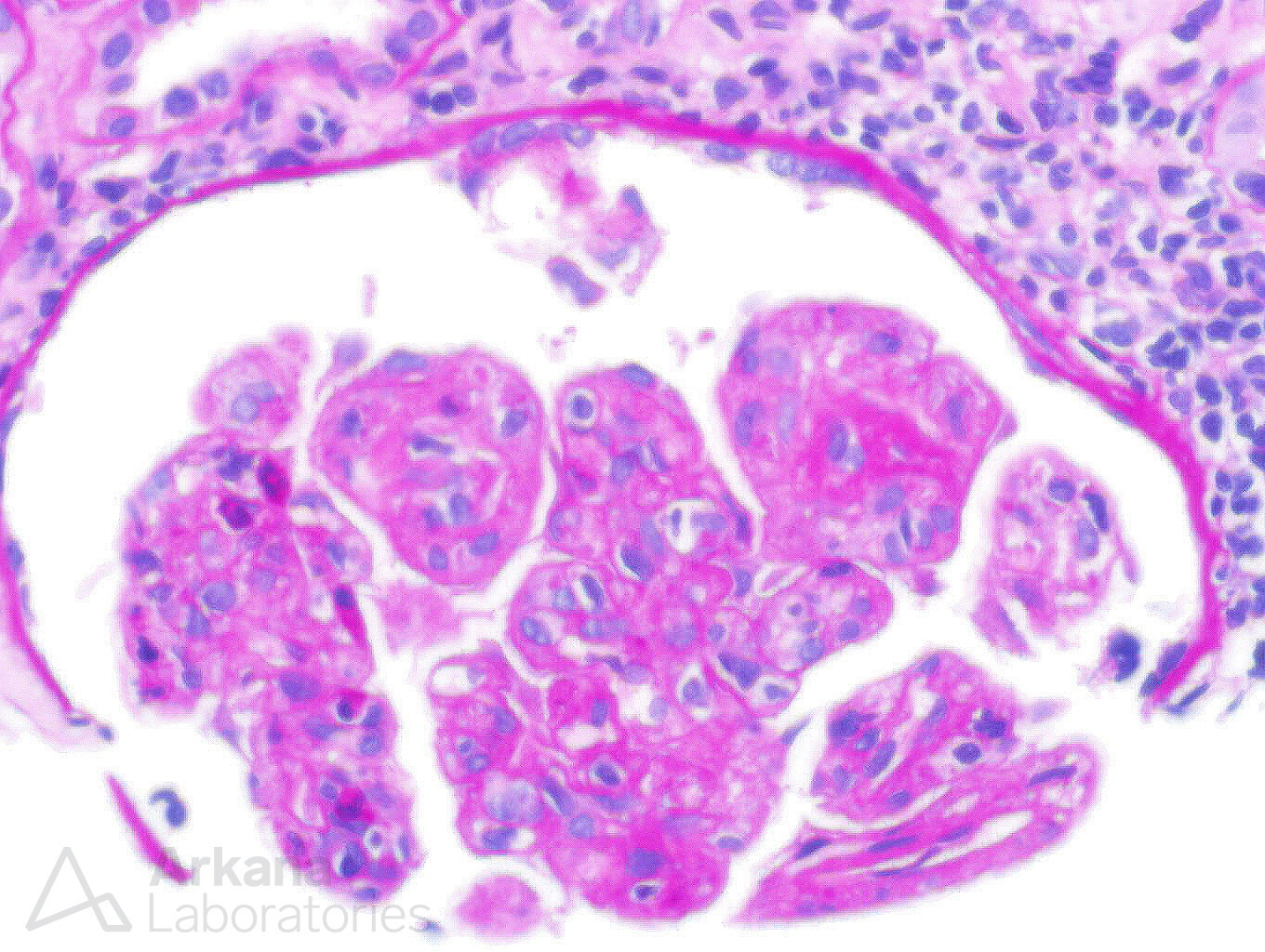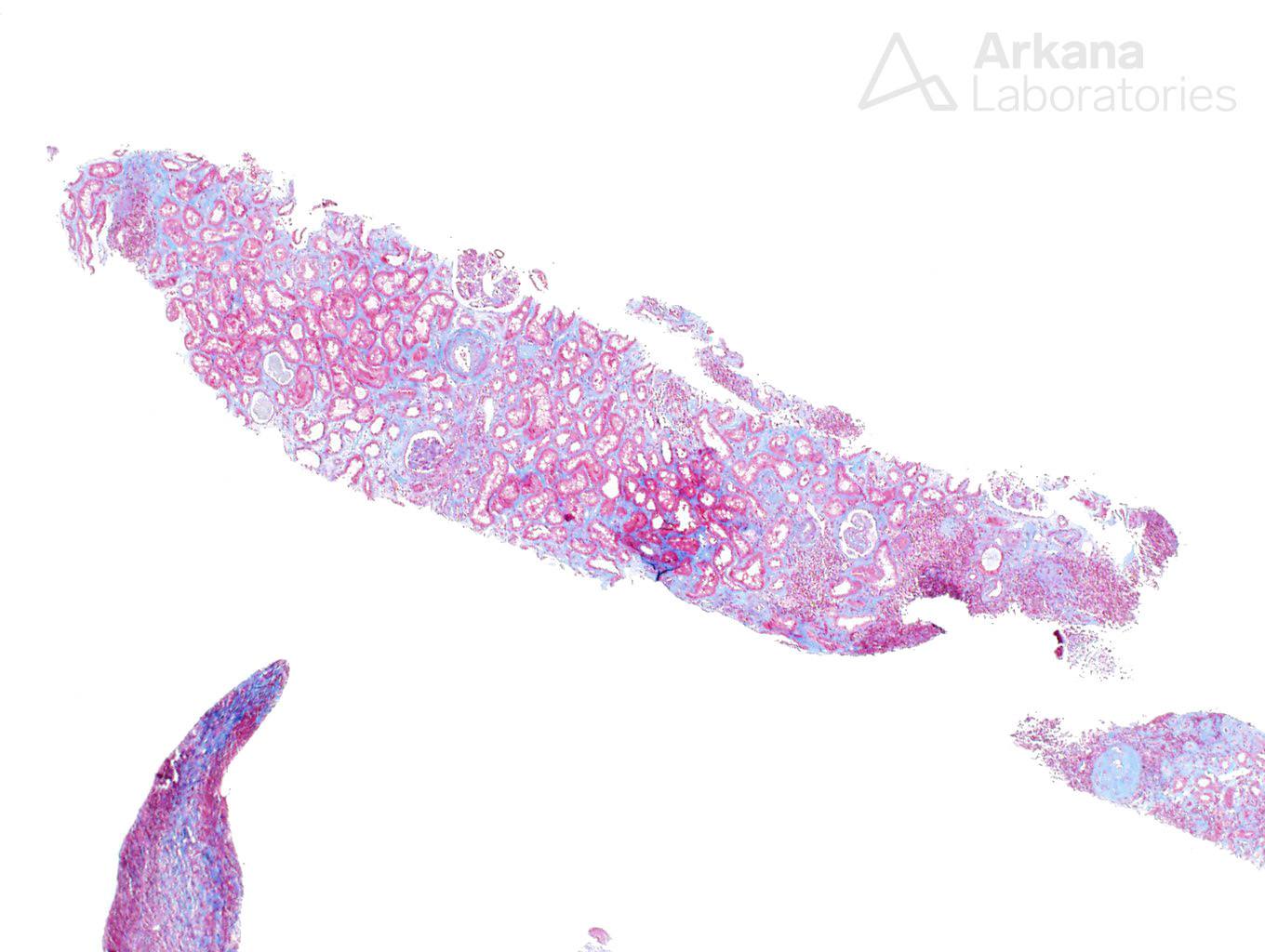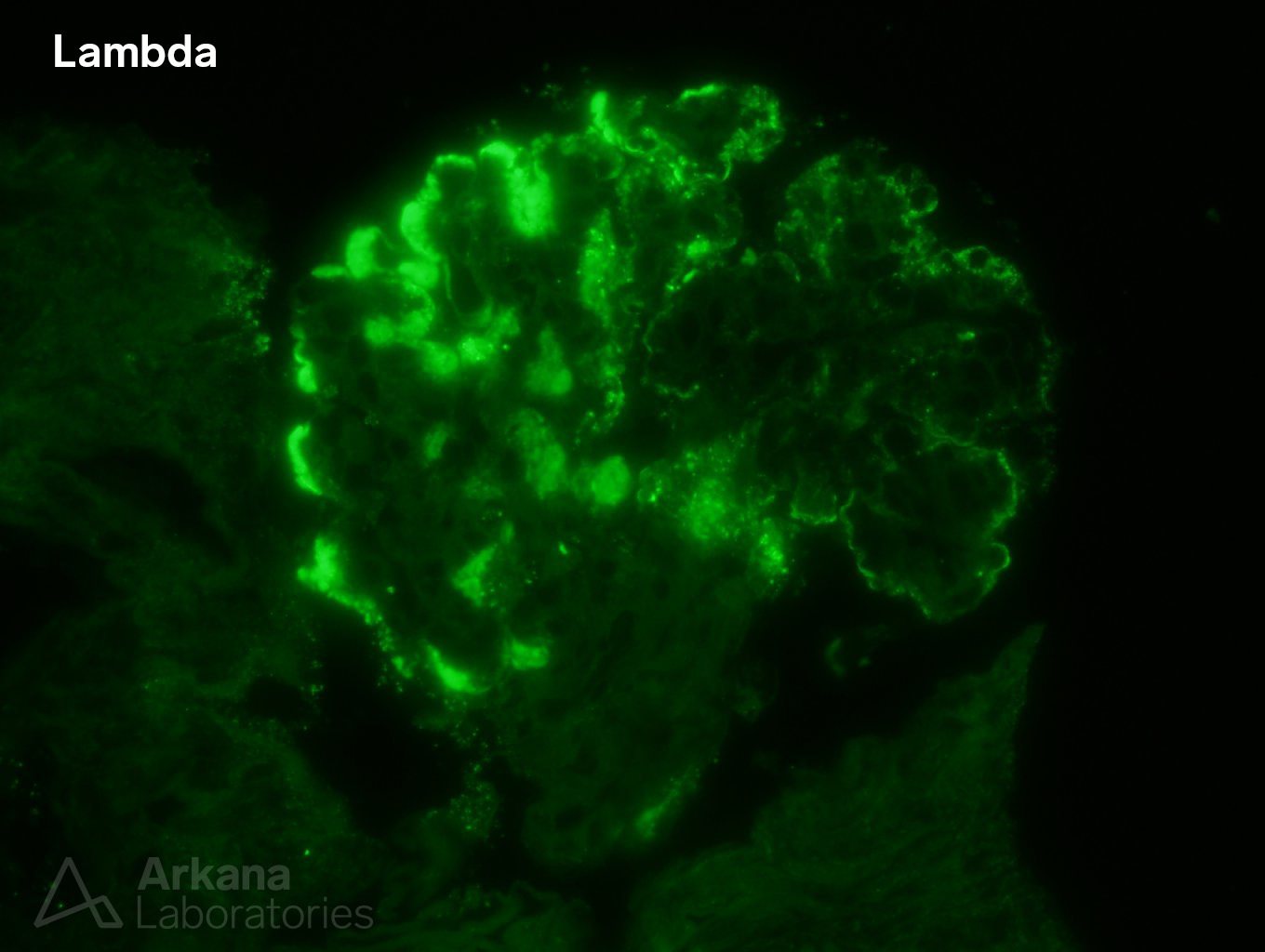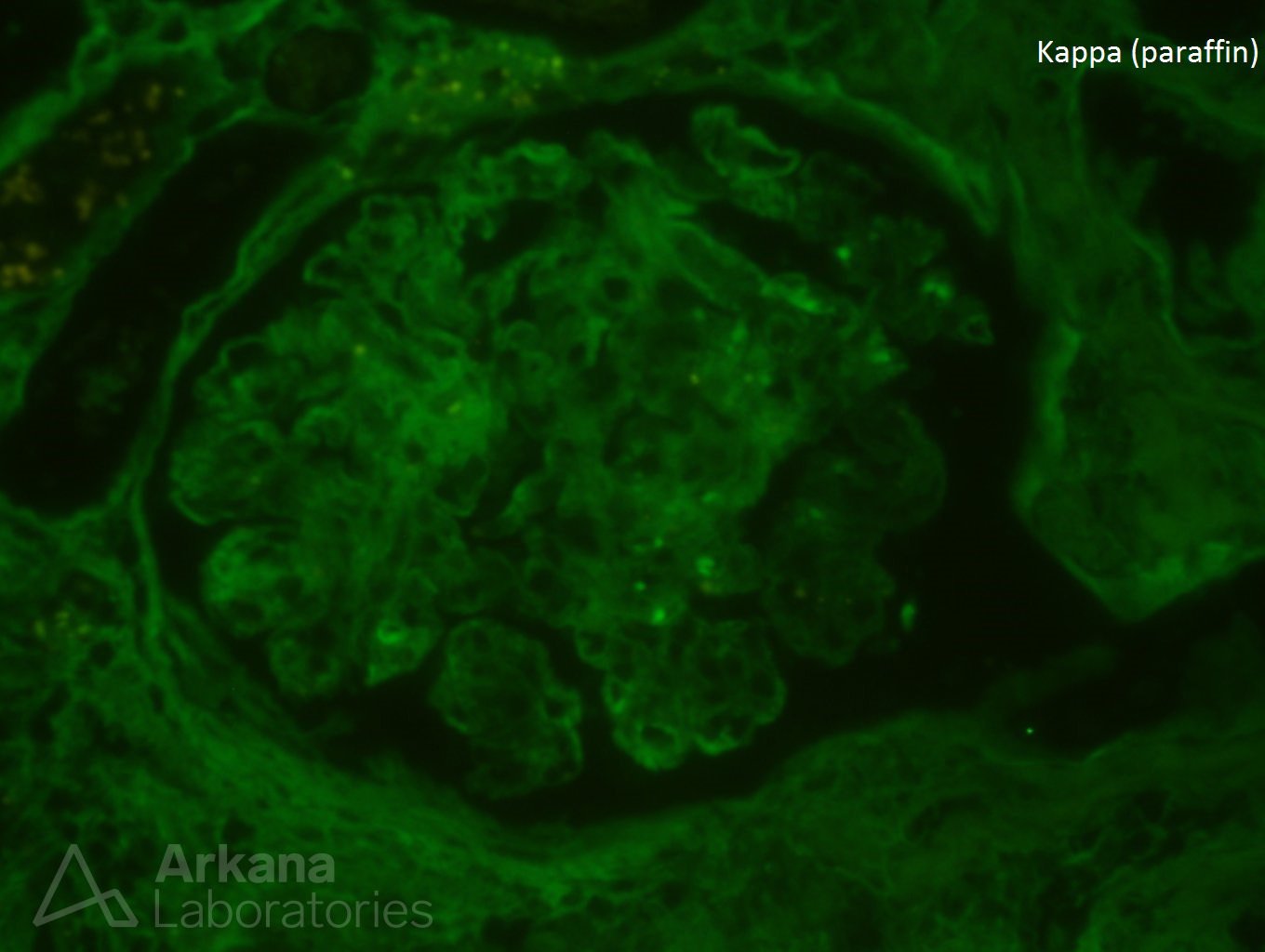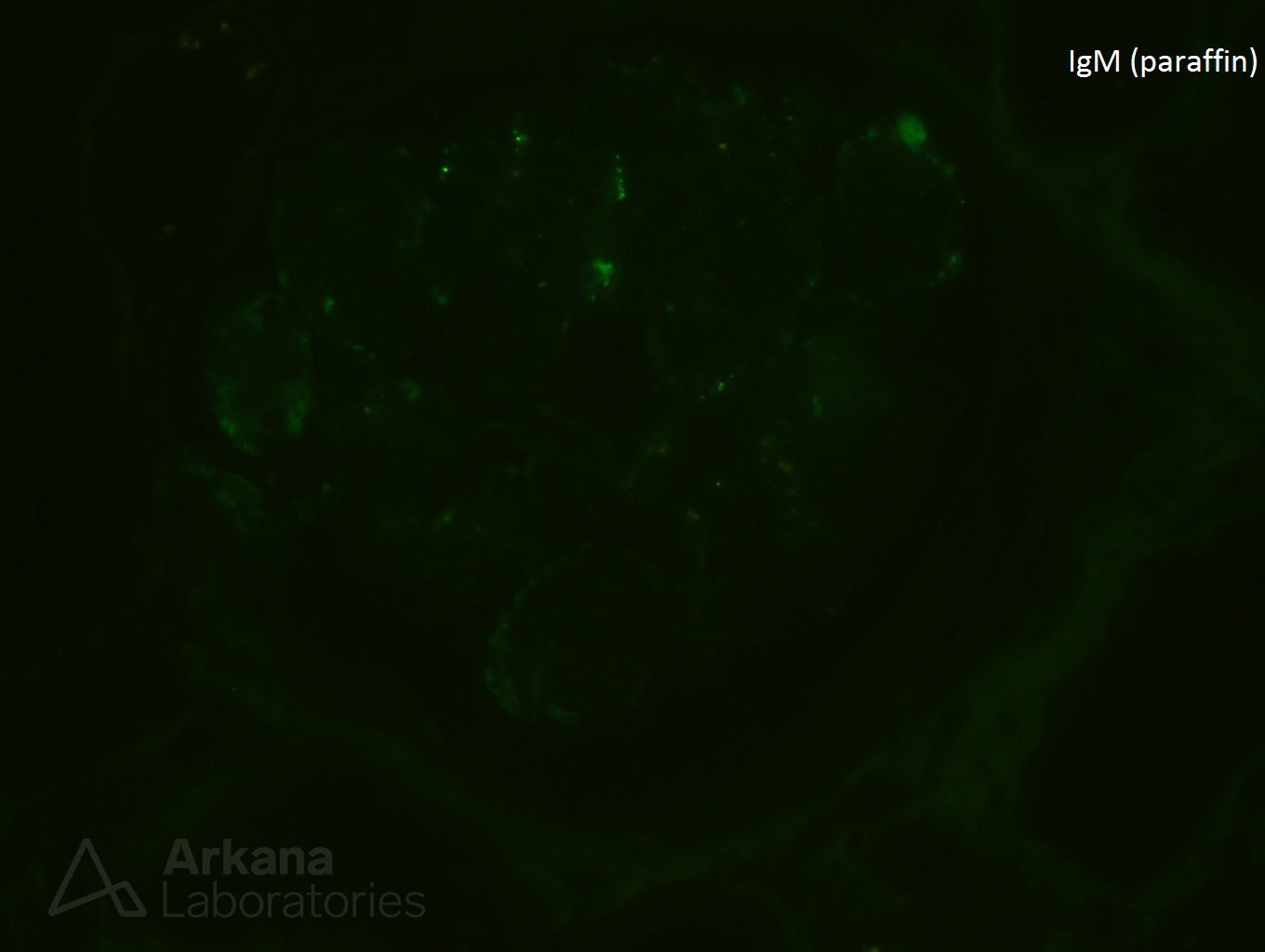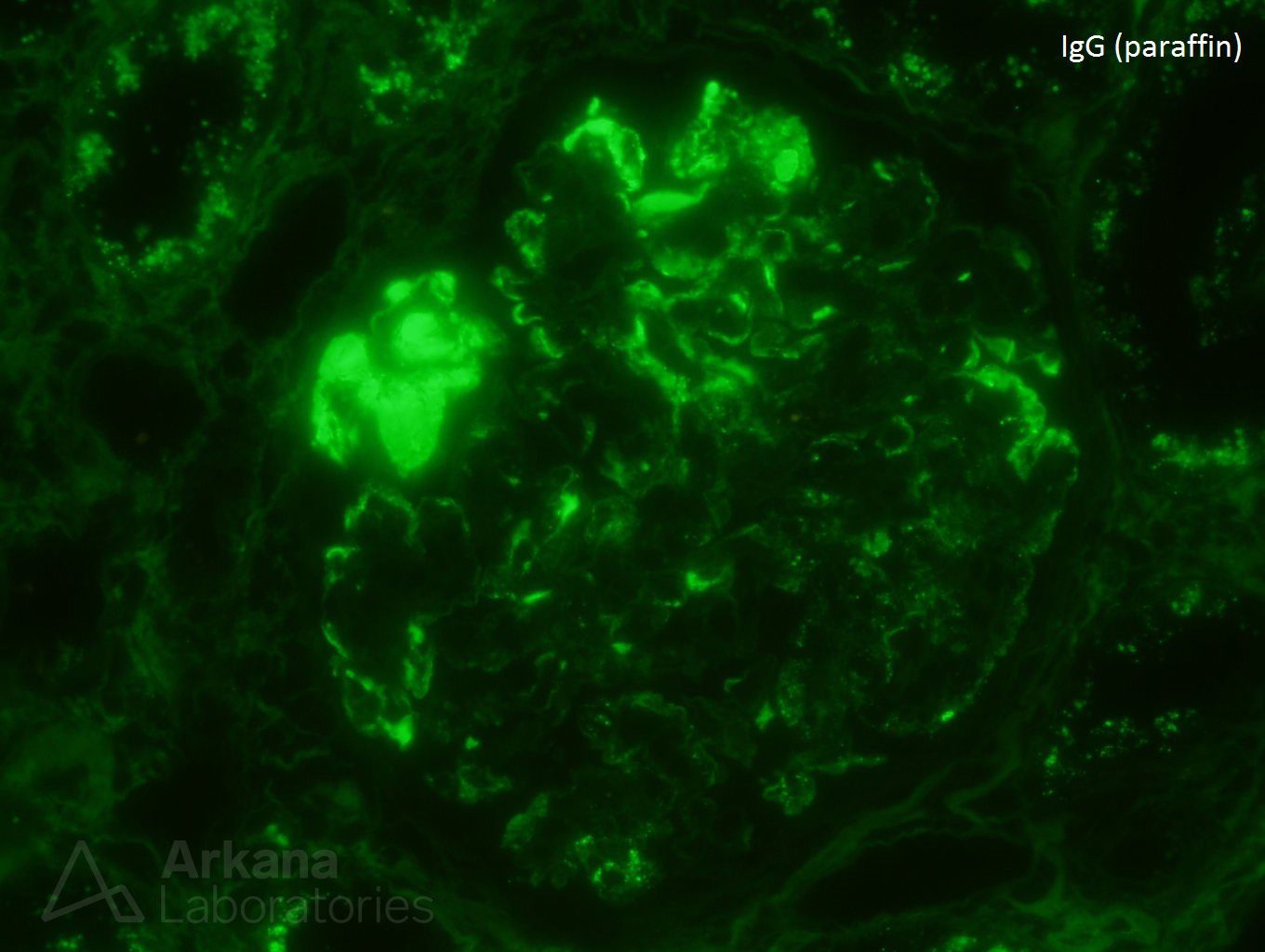The patient is a 75-year-old female who presents with proteinuria and a creatinine of 2.50. She has chronic lymphocytic leukemia, hypertension, and multiple sclerosis.
What is the best diagnosis?
A. Type I Cryoglobulinemia
B. Type II Cryoglobulinemia
C. Hepatitis C associated MPGN
D. C3 Glomerulonephritis
The best answer is A (type 1 cryoglobulinemia).
The biopsy shows a membranoproliferative pattern with IgG lambda restriction. The presence of hyaline thrombi is concerning for cryoglobulinemia. Cryoglobulins are immunoglobulins that precipitate in the cold and dissolve on warming and induce disease via vascular injury and blockage. Three types of cryoglobulins are distinguished based on whether the cryoglobulin is monoclonal and has rheumatoid factor activity. Type I is a monoclonal antibody that does not have rheumatoid factor activity. Type I is usually associated with lymphoma (as in this case), Waldenstrom’s macroglobulinemia, or multiple myeloma. Type II and Type III cryoglobulins are associated with rheumatoid factor and have a monoclonal IgM plus a polyclonal IgG in Type II while Type III has both polyclonal IgM and polyclonal IgG or IgA. Type II cryoglobulinemia is usually associated with hepatitis C. In this case, the lack of IgM staining and lambda light chain restriction makes hepatitis C-associated MPGN and type II cryoglobulinemia very unlikely. Additionally, C3 glomerulonephritis would show C3 staining only and no immune-complex deposits.
Quick note: This post is to be used for informational purposes only and does not constitute medical or health advice. Each person should consult their own doctor with respect to matters referenced. Arkana Laboratories assumes no liability for actions taken in reliance upon the information contained herein.
